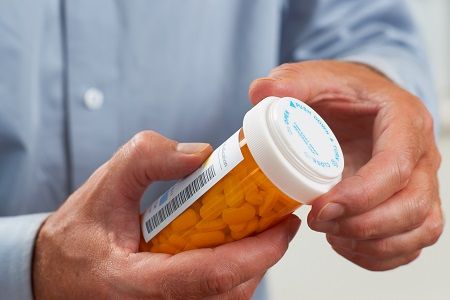Article
Anti-TNF Biosimilars Yield Similar Results as Originator Drug in IBD Patients
Author(s):
There is very little data on long-term outcomes from pediatric patients with inflammatory bowel disease treated with anti-TNF biosimilars.

A new analysis shows anti-tumor necrosis factor (anti-TNF) biosimilars produce similar clinical outcomes as their originator drugs in pediatric patients with inflammatory bowel disease (IBD).
A team, led by Madeline McClinchie, compared the biosimilar and anti-TNF originator in pediatric patients with Crohn’s disease or ulcerative colitis.
Biosimilars by nature are meant to be biologic treatments similar in safety and efficacy to their originator.
While anti-TNF are commonly prescribed to treat patients with IBD, there are limited data evaluating the long-term outcomes for anti-TNF biosimilars in pediatric patients with IBD.
“Growth is an important clinical outcome, especially in childhood-onset IBD,” the authors wrote. “However, no study to date has compared growth outcomes in patients initiated on the IV anti-TNF originator as compared to a biosimilar.”
In the single-center retrospective review, the investigators examined patients with IBD aged younger than 16 years who initiated intravenous anti-TNF originator or biosimilar treatment between April 2016 and February 2021 at the Nationwide Children’s Hospital.
Each participant was required to remain on the IV anti-TNF treatment for at least 12 months.
The investigators used a propensity score methodology to identify 37 pairs of matched patients with similar baseline characteristics, including age of anti-TNF initiation, IBD subtype, behavior, location, perianal type, and race.
The team collected demographic data, laboratory values, disease activity scores, and growth values, such as weight, height, and body mass index z-scores, at baseline and 6 and 12-months post initiation.
Finally, they used linear mixed models with random intercepts accounting for within patient correlation of measurements fit to test the differences in measures over time and between study groups and conducted hypothesis testing at an alpha of 0.05 for all statistical analyses.
In the study, 113 patients were treated with the originator, while 39 patients were treated with the biosimilar.
The results show 19% of the originator group and 16% of the biosimilar group were excluded from the final analysis because they discontinued the IV anti-TNF treatment prior to the 12 month mark.
For the patients included in the final analysis, weight, height, and BMI z-scores increased from baseline to month 12 for both cohorts (P <0.05). However, there was not a significant difference in the rate of change for weight, height, or BMI z-scores between the 2 groups.
Lab values, including albumin, c-reactive protein, and hemoglobin were also not statistically different between the 2 groups in the rate of change from baseline to 12 months, nor was there a significant difference in pediatric Crohn’s disease activity index, pediatric ulcerative colitis activity index, or the physician global assessment between patients between the 2 groups from baseline to month 12.
“There were similar improvements in growth and clinical outcomes in patients initiated on the IV anti-TNF originator compared to a biosimilar agent. This is the first study to evaluate whether anti-TNF biosimilars have similar growth outcomes in children with IBD,” the authors wrote.
The study, “GROWTH OUTCOMES OF IV ANTI-TNF BIOSIMILARS IN PEDIATRIC INFLAMMATORY BOWEL DISEASE,” was published online in Inflammatory Bowel Diseases.





